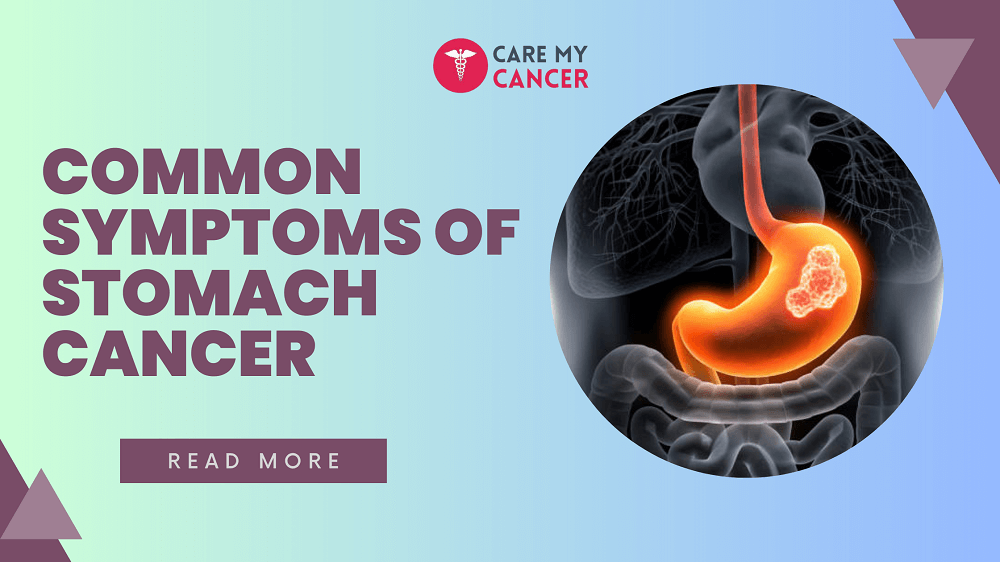Stomach cancer, also known as gastric cancer, is a type of cancer that develops in the lining of the stomach. Often referred to as the “silent threat,” stomach cancer can be challenging to detect in its early stages because symptoms may not appear until the disease has advanced. Understanding the common symptoms of stomach cancer is crucial for early detection and improved prognosis.
Persistent Indigestion
One of the earliest and most common symptoms of stomach cancer is persistent indigestion. Individuals may experience discomfort or burning sensations in the upper abdomen, often after eating. While occasional indigestion is normal, persistent symptoms that worsen over time should not be ignored. If indigestion persists for more than a few weeks, it’s essential to consult a healthcare professional for further evaluation.
Unexplained Weight Loss
Unexplained weight loss is another red flag for stomach cancer. Individuals may notice a significant decrease in weight without making any changes to their diet or exercise routine. Weight loss associated with stomach cancer can occur rapidly and may be accompanied by a loss of appetite. This unintentional weight loss is often a result of the body’s inability to properly digest and absorb nutrients from food.
Abdominal Pain
Abdominal pain or discomfort is a common symptom experienced by individuals with stomach cancer. The pain may be localized in the upper abdomen and can vary in intensity. Some people describe the pain as a dull ache, while others may experience sharp or stabbing sensations. Persistent or recurrent abdominal pain should prompt further evaluation by a healthcare provider to rule out underlying conditions, including stomach cancer.
Nausea and Vomiting
Nausea and vomiting are frequent symptoms of stomach cancer, especially as the disease progresses. Individuals may experience nausea after eating or feel the urge to vomit without any apparent cause. Persistent nausea and vomiting can lead to dehydration and electrolyte imbalances, further impacting overall health and well-being.
Difficulty Swallowing
Difficulty swallowing, also known as dysphagia, can occur in individuals with advanced stomach cancer. This symptom may manifest as a sensation of food getting stuck in the throat or chest while swallowing. Dysphagia can significantly impact a person’s ability to eat and drink comfortably, leading to nutritional deficiencies and weight loss over time.
Feeling Full Quickly After Eating
Feeling full quickly after eating, also known as early satiety, is a common symptom of stomach cancer. Individuals may experience a sensation of fullness or bloating shortly after starting a meal, even if they have only consumed a small amount of food. Early satiety can contribute to decreased appetite and weight loss, further exacerbating the symptoms of stomach cancer.
FAQs (Frequently Asked Questions)
- What are the early signs of stomach cancer?
Early signs of stomach cancer may include persistent indigestion, unexplained weight loss, abdominal pain, nausea, vomiting, and difficulty swallowing, and feeling full quickly after eating.
- How is stomach cancer diagnosed?
Stomach cancer is typically diagnosed through a combination of medical history review, physical examination, imaging tests (such as endoscopy and imaging scans), and biopsy.
- Can stomach cancer be prevented?
While it’s not always possible to prevent stomach cancer, adopting a healthy lifestyle, including a balanced diet rich in fruits and vegetables, avoiding tobacco and excessive alcohol consumption, and maintaining a healthy weight, can help reduce the risk.
- What should I do if I suspect I have stomach cancer?
If you experience symptoms suggestive of stomach cancer, such as persistent indigestion, unexplained weight loss, or abdominal pain, it’s essential to consult a healthcare professional promptly. Early detection and treatment can significantly improve outcomes.
- How successful is treatment for stomach cancer?
Treatment outcomes for stomach cancer depend on various factors, including the stage of the disease at diagnosis, the individual’s overall health, and the chosen treatment approach. Treatment options may include surgery, chemotherapy, radiation therapy, targeted therapy, and immunotherapy.
- Is stomach cancer hereditary?
While most cases of stomach cancer are not hereditary, a small percentage may be attributed to genetic factors. Individuals with a family history of stomach cancer or certain genetic syndromes may have an increased risk and should undergo regular screening as recommended by healthcare professionals.
Conclusion
In conclusion, recognizing the common symptoms of stomach cancer is essential for early detection and improved outcomes. Persistent indigestion, unexplained weight loss, abdominal pain, nausea, vomiting, difficulty swallowing, and early satiety are all potential warning signs that should not be ignored. If you experience any of these symptoms, it’s crucial to consult a healthcare professional promptly for further evaluation and diagnosis. By raising awareness about stomach cancer symptoms and promoting early detection, we can work towards better outcomes for individuals affected by this disease.

